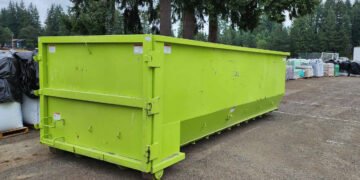Nearly 23.5 million Americans are addicted to either drugs or alcohol, and this number is on the rise. Are you or a loved one thinking about a sober living facility?
Recovery from addiction is hard. Nearly 40 to 60 percent of people will relapse.
Keep reading about sober living and how you can aid sobriety treatment.
What Is a Sober Living House?
Sober living houses are a group recovery home for people recovering from addiction. Residents must stay sober while living in these facilities and comply with any and all drug-testing requests.
Typically, private owners own these homes, but sometimes, businesses or charities may own them. You can find sober living homes in residential areas. People living in these homes will share common areas such as backyards, kitchens, and living rooms.
Sober living homes are not treatment centers. The staff does not supply any medical or clinical services, but patients can still attend outpatient rehab or other treatments with a recovery-based group.
Who Can Live in a Sober Living House?
Most sober living facilities will accept residents new to the sobriety and rehab process. To stay sober after rehab, the majority of residents must complete a substance abuse program before moving in. Those that are actively working on their recovery should have some sobriety time under their belt and learned some tools to help them stay sober.
The residents should also complete a detox program with medical stability if needed before living in a sober house. This is for their own health and to help them from having ill effects of detox.
Rules and Regulations
A sober living home’s goal is to aid with rehabilitation programs. They aim to keep residents safe and support the long road recovery process. They also help residents learn to build a sober lifestyle.
Some of the rules may include:
- No drugs or alcohol on-premises
- Adhere to curfews
- Pay for appropriate expenses
- Respect other housemates and staff
- No overnight guests are permitted
- Agree to random drug and alcohol testing
- Must sleep at the facility at least five nights a week
- Continue rehabilitation programs and attend meetings
- Participate in household activities and complete chores
The specific rules depend on the manager or sober living home. Before you decide, you may want to get a list of rules from each potential recovery home. As long as you follow these rules, you may stay as long as you want or need to.
Improve Your Chances of Staying Sober
The sober living home is a complement to a sobriety program. It is an option after the rehab process instead of going home to an unstructured environment.
These homes will help create and produce normal everyday life situations to help the individual create healthy habits to minimize the chances of relapse.
Sober living homes also help guide residents by helping the person:
- Find a job
- Make amends with family and friends
- Adjust to living when moving to an unstructured environment
- Locate housing after treatment
It’s imperative to create an aftercare plan. This helps the person identify triggers to their addiction. It will give the person coping skills to deal with high stress and cravings.
Without a plan, the person will have issues managing triggers and can easily relapse.
Get Help
Addiction struggles are real, and this is why so many people relapse. If you want to improve your chances of staying sober, you may want to consider a sober living house for you or your loved one. Remember, you can do this.
Looking for more living advice? Keep checking out our site for more articles to help you live your best life.
Read Also : 5 Exterior Siding Options to Consider for Your Home






























































